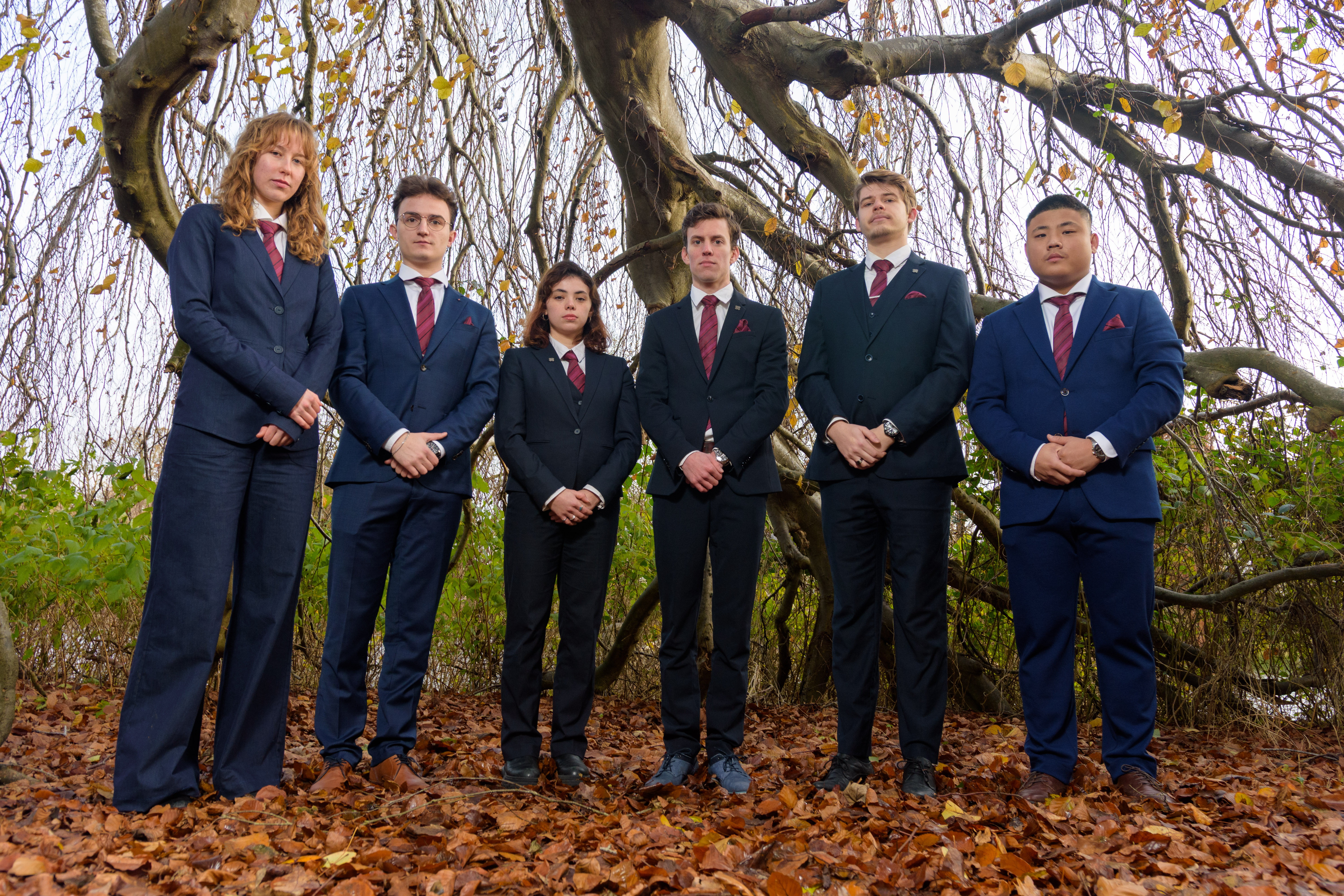In 2026, Buixie is visiting Poland!
We will be traveling to Krakow and Warsaw, and sign-ups are now open. Via a lottery, 36 students will be selected to join the trip. The group will depart on April 11 and will visit several universities, companies, and institutes in the field of applied physics. The Buixie board will keep you updated about the trip.
Each year, the Foreign Lustrum Excursion Foundation (SLEF), related to the Buitenlandse-excursiecommissie (Buixie), organises an excursion to a foreign (European) country for members of T.F.V. 'Professor Francken', visiting universities and companies to get an impression of the world of engineering physics outside of the Netherlands. Furthermore, with a lustrum, the committee goes all-out and organises an excursion to another continent, broadening the horizon even more. This excursion is perfect if you are interested in physics abroad or if you want to meet people from various companies and universities. Overall this excursion will be a great experience with your fellow students and friends!
To finance the foreign excursions and keep the participants' fee as low as possible, the foreign excursion committee provides so-called case studies. A case study is an assignment by a company under supervision of a PhD or professor at the RUG. It could be anything from purely theoretical research to a practical assignment. The student doing such a case study is rewarded ECTs, which can be used for the mandatory bachelor project or master project. Our job is to arrange these case studies, and initiate contact between students, the university and companies.
Thereby, the student doing a case study receives a so-called wild card for the foreign excursion. This means that he or she will have guarantee to join the excursion in 2026 to Krakow and Warsaw. If you are interested in doing a case study or want to know more, send us an email.
A company can hire students who follow their education at the University of Groningen (RUG) to do a so called case study, which is an assignment by a company under supervision of a PhD or professor at the RUG. This case study is performed to fund a foreign excursion for members of the study association T.F.V. 'Professor Francken'. The case study can be something like a theoretical research or a practical assignment. For both the theoretical and practical cases the equipment, infrastructure and knowledge of the university can be used by the students to perform the study. For case studies we enlist students with a Physics, Applied Physics, Mathematics, Applied Mathematics or Astronomy background who are finishing their undergraduate degree or sometimes their graduate degree. In the case of Physics or Astronomy, the student has knowledge of classical and quantum mechanics, and knows how to perform a theoretical study. For Applied Physics, the student has done courses in electronics, mechanics, a basic course in programming and numerical methods. Mathematics and Applied Mathematics students have learned to think analytically and know how to solve problems as such, and know a fair deal about statistics. After enlisting students, we then contact companies who can hire a student for a certain amount of hours, 420 hours for a 'normal' case.
Is your company interested in providing a case study? Please do not hesitate to get in touch and email us
Companies are very interested in C++ programmers. If you are interested in a C++ case study, please mail us your CV and field of interests for C++. The companies will then find and shape the project that best suits you. Be sure to mention which C++ courses you have passed, and the professor that taught it.
Example case 1: Machine Learning
Superconducting Transition Edge Sensors (TES) represent the state of the art in ultra-sensitive radiation detection, with applications ranging from the far infrared to X-rays. Future instruments will have arrays of many thousands of these detectors and as these arrays grow, so does the time needed to test and characterize them. The fundamental diagnostic for a TES is its current vs voltage curve (IV curve). From the IV curve we can derive important parameters such as the saturation power. The aim of this project is to use machine learning to classify large numbers of IV curves so that they can be analyzed without being inspected by a human. This would save a significant amount of time, especially as arrays become larger. Eventually, we would like to be able to characterize a full array of TES detectors automatically. We have a large collection of IV curves that can be used to train and test machine-learning algorithms, so the project can be done remotely. The project would build on work done by previous students with a view to improving the classification accuracy and exploring alternative approaches.
Example case 2: Fourier Transform Spectrometer
The aim of the student project is to characterize and optimize a so-called proto-type Fast-Scan Fourier Transform spectrometer system, optimize the optical throughput of the system, and compare the performance of the instrument with theoretical predictions. The FTS spectrometer system consists of a thermal black body source, a gas cell, the FTS spectrometer, and a cryogenically cooled detector. The operation of an FTS is based on the interference of two optical beams (originally one beam, split into two beams and recombined with a beam splitter within the FTS), where the optical path length of one beam is varied by use of a moving mirror. The movement of the mirror can be continuous (fast-scan,) or in steps (step-scan, step-and-integrate). In a previous student project an existing step-scan Far-infrared Fourier Transform Spectrometer has been modified to include a fast-scan capability (by modifying hardware and software). The framework of the fast-scan mode is now present, but final optimization and characterization.
